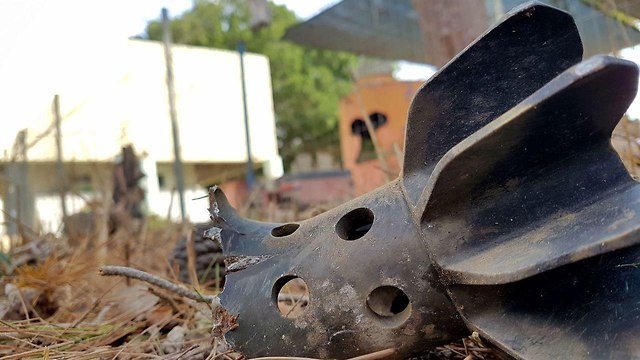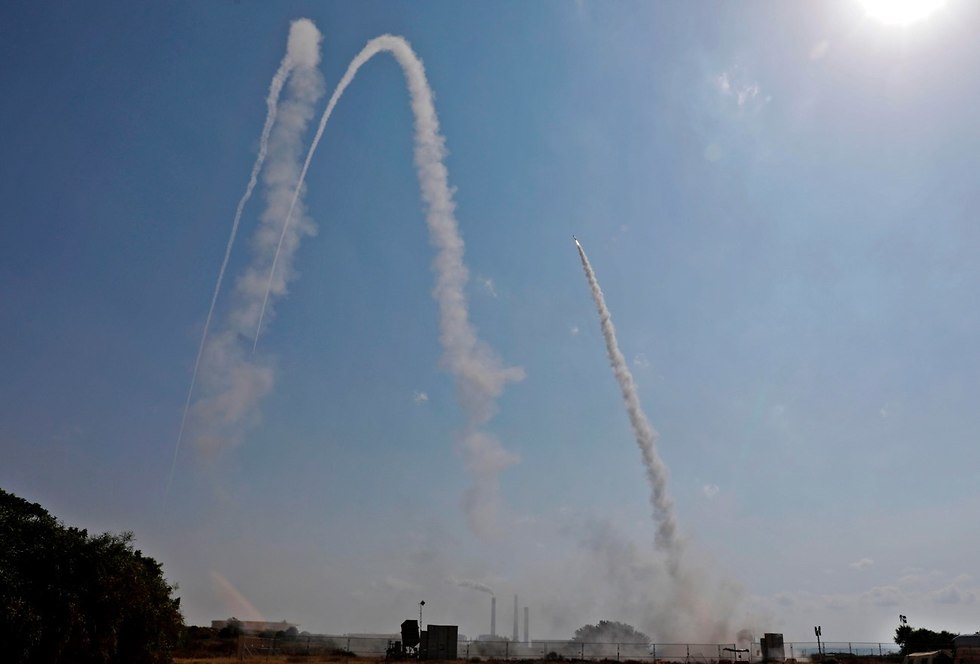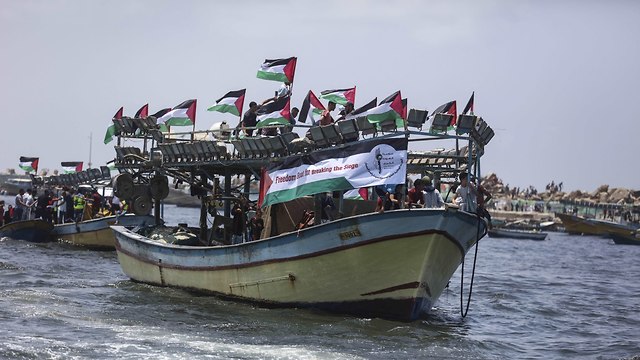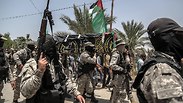
The Palestinian Islamic Jihad (PIJ), a Gaza militant group that the IDF says has fired more than 25 mortar shells indiscriminately toward communities in southern Israel Tuesday—in what appeared to be the largest single barrage fired since the 2014 Operation Protective Edge—asserted it does not wish to escalate its current battle with Israel into a full-scale armed conflict.
"We are not interested in escalation and are not going to war, but we want to respond to Israel's attacks," PIJ said in a statement. "Israel is violating the ceasefire reached after Operation Protective Edge. There should be a Palestinian response to the Israeli escalation that will demonstrate the strength of the resistance."
"We are sticking to the right of return as well as responding to Zionist crimes," said Khaled al-Batsh, an Islamic Jihad leader in Gaza, in an earlier statement.
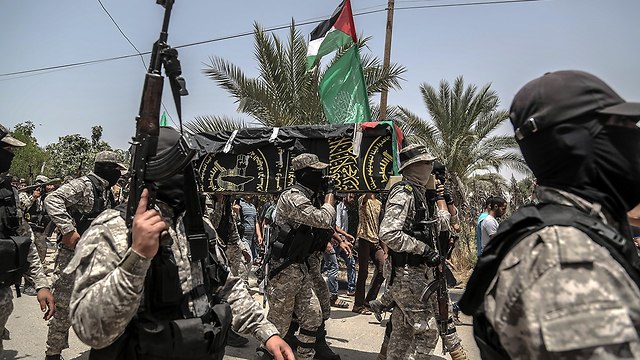
An official source in the Gaza Strip told Ynet that Egypt is currently negotiating with the Islamic Jihad's leadership to prevent further escalation in the south.
So far, three IDF soldiers were hurt by the incessant fire. Two of them were lightly wounded, while one of them was moderately wounded. The military said that most of the mortar shells were intercepted by the Iron Dome defense system, though one of the shells landed near a kindergarten shortly before it opened.
The high volume of projectiles came as tensions have been running high along the Israel-Gaza border and a fierce Israeli response was expected.
While the IDF affirmed the attack was launched by the Islamic Jihad, it held Hamas responsible for it, reiterating it is the sole body controlling the strip and is believed to have given the Islamic Jihad the green light to attack.
"Israel will exact a heavy price from those who seek to harm it and we see Hamas as responsible for preventing such attacks," Prime Minister Benjamin Netanyahu said following the barrage.
In an interview with Ynet, IDF Spokesperson Ronen Manelis said the army is "prepared for the coming days, and how things will go is the choice of (the group) responsible for what is happening in the Gaza Strip, which is the Hamas terrorist organization."
He then went on to call the fire from Gaza "unacceptable," and slammed Iran for providing the two terror groups with funds and weapons.
Ismail Radwan, a Hamas official, said the barrage proved that the "resistance is capable of hurting the occupation and it proved this today by responding to its crimes."
Radwan spoke as a boatful of students and medical patients set sail out of Gaza City's port, aiming to break 11 years of naval blockade that Egypt and Israel imposed after the militants violently took control of the coastal territory.
The expedition would be a new way of challenging the blockade but also raised the possibility of more confrontation and violence as Israel bars any boats from Gaza reaching farther out than 6 miles into the Mediterranean Sea.
Ultimately, though, the boat was caught by IDF naval vessels and dragged back to the coastal enclave.
In southern Israel, angry residents complained about how vulnerable they felt after 15 years of rocket fire threats from neighboring Gaza, which will likely put pressure on the government to retaliate harshly.
Adva Klein, a resident of Kibbutz Kfar Aza, said she only got about two hours of sleep because of the frequent incoming fire and the sirens warning of them. Other residents reported machine gun fire from Gaza as well.
"It's been a really scary morning," said Adele Raemer, a resident of Kibbutz Nirim.
Defense Minister Avigdor Lieberman said he was convening the top military brass at his Tel Aviv headquarters to discuss the situation.
On Sunday, Israeli shelling killed three Palestinian militants from the smaller Islamic Jihad group after the troops found a bomb planted along the border. The Islamic Jihad vowed retaliation.
On Monday, a tank fired at a Hamas position in the Gaza Strip, killing one man and wounding another, after Israeli troops came under fire on the frontier while apprehending two armed Palestinians.















